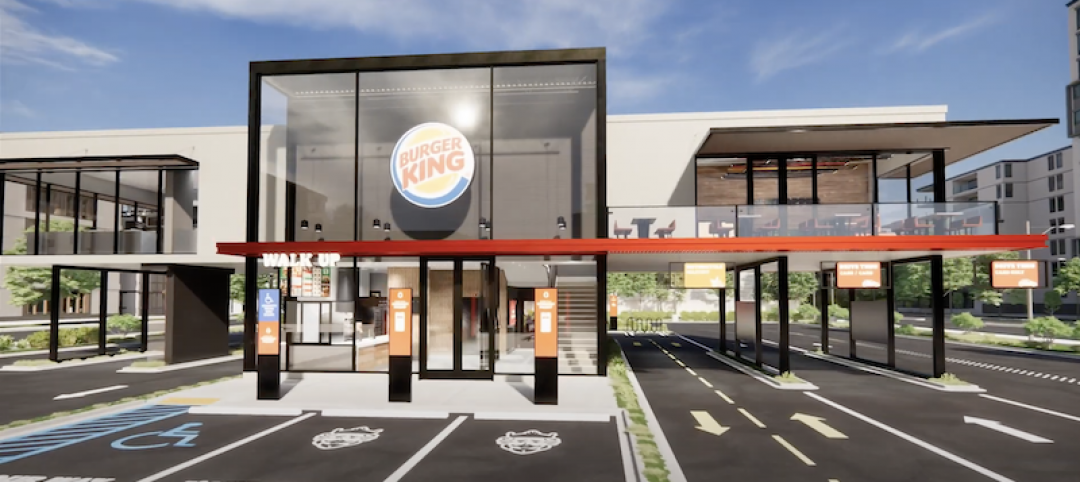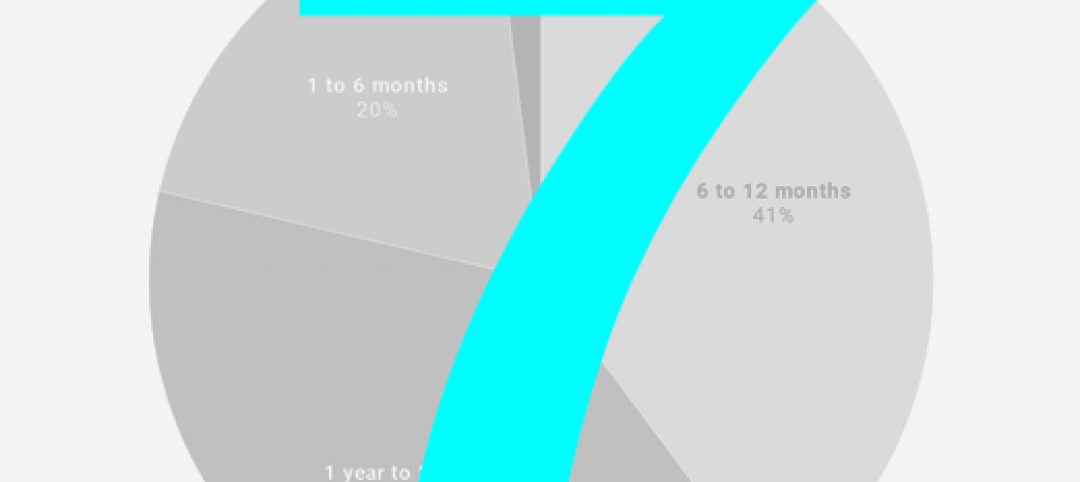The International Code Council surveyed building and fire departments to learn how code officials are coping with the professional challenges brought on by the COVID-19 pandemic. From March 22 through April 1, 2020, more than 1,150 respondents from all 50 U.S. states and the District of Columbia provided input. Respondents came from jurisdictions of all sizes ranging from 1,000 people to over 4.6 million.
The survey collects trends, ideas, solutions and best practices from code officials about how they are keeping up with new building permits and new construction during the pandemic months.
Although the U.S. Department of Homeland Security has determined the work of building and fire prevention departments to be essential to the nation’s response to the coronavirus pandemic—and no state has made a contrary determination—6 in 10 survey respondents did not have the capability to remotely carry out critical aspects of their work. With many departments already under resourced and many state and local governments facing severe revenue downturns resulting from the coronavirus pandemic, it is critical that federal coronavirus response funding be directed to building and fire prevention departments that need it to continue their essential functions. Such investments would speed the restart of our economy and produce lasting reductions in departmental operation costs and permitting timelines.
The recently passed Coronavirus Aid, Relief, and. Economic Security Act (CARES Act, H.R. 748), provides state, local, tribal, and territorial (SLTT) governments with $150 billion through a Coronavirus Relief Fund (CRF) for necessary spending in response to this public health emergency, $45.4 billion through FEMA’s Disaster Relief Fund (DRF), and $5 billion through the Community Development Block Grant (CDBG) program. Funding that enables code departments to work remotely should be an eligible activity under the CRF, and both the DRF and CDBG program have funded code enforcement activities previously. The Code Council has also urged the U.S. Congress to allocate support specifically for code department remote capabilities as part of a fourth coronavirus response measure Congress is currently considering.
The main survey findings are:
- The majority of departments surveyed (93%) are still performing inspections, either remotely or in-person. This falls in line with what the Code Council expected given that many areas have classified construction and code compliance activities as essential.
- More than half (65%) of respondents said that some or all employees that conduct plan review or inspections are working remotely.
- A large percentage of jurisdictions (66%) use a combination of electronic and hard copy versions of building safety codes, while a much smaller percentage of jurisdictions (7%) have advanced to using all electronic. 27% of respondents said their jurisdiction used only hard copies. This could create challenges where hard copies are shared and departments do not have enough hard copies for each now-remote employee that needs them. In fact, 23% said their employees do not have access to needed hard copy code books.
-
Many jurisdictions have made the switch to electronic services, but a large percentage still do not have the capacity to go virtual. In particular:
- 40% do not have the capability to do electronic/remote plan reviews.
- 30% do not have the capability to do any aspect of electronic/remote permitting.
- 61% do not have the capability for electronic/remote inspections.
- To expand services to fight the coronavirus pandemic, many healthcare facilities are putting beds in alternative locations (like school gymnasiums, hotels, outpatient surgical centers) or in temporary structures in their parking lots. 26% of respondents have encountered requests for permits for temporary occupancy and/or temporary structures as a result of the COVID-19 pandemic.
“The results of this survey show how quickly and efficiently many Code Council governmental members have moved from office work to telework and have adapted to a new virtual work environment,” said Code Council Chief Executive Officer Dominic Sims, CBO. “Now more than ever, we are reminded of the importance of building safety. Throughout this crisis, the Code Council will remain committed to its mission to advocate for building safety professionals around the world and identify new ways to contribute to public safety.”
“Code officials are essential to keeping our communities safe and protected. Especially during these difficult times when we find our greatest protection from remaining inside, their continued service to ensure building and public safety is critical,” said Code Council Senior Vice President of Government Relations Sara Yerkes. “We commend the offices across the nation that have virtually reframed their operations and we urge Congress, states and local governments to recognize the need for an allocation of resources directed to building departments to continue the important work of ensuring new construction and remodeling projects meet fundamental safety standards.”
This survey is ongoing, and the Code Council will continue to collect responses to these important questions. Forthcoming will be a document outlining best practices on virtual code compliance activities.
View the survey report and infographic.
Related Stories
Coronavirus | Sep 28, 2020
Cities to boost spending on green initiatives after the pandemic
More bikeways, car restrictions, mass transit, climate resilience are on tap.
Coronavirus | Sep 28, 2020
Evaluating and investing resources to navigate past the COVID-19 pandemic
As AEC firm leaders consider worst-case scenarios and explore possible solutions to surmount them, they learn to become nimble, quick, and ready to pivot as circumstances demand.
Coronavirus | Sep 24, 2020
The Weekly show: Building optimization tech, the future of smart cities, and storm shelter design
The September 24 episode of BD+C's "The Weekly" is available for viewing on demand.
Coronavirus | Sep 10, 2020
Mobile ordering is a centerpiece of Burger King’s new design
Its reimagined restaurants are 60% smaller, with several pickup options.
Coronavirus | Sep 9, 2020
Prefab: Construction’s secret weapon against COVID-19
How to know if offsite production is right for your project.
Coronavirus | Sep 3, 2020
The Weekly show: JLL's construction outlook for 2020, and COVID-19's impact on sustainability
The September 3 episode of BD+C's "The Weekly" is available for viewing on demand.
Coronavirus | Sep 1, 2020
6 must reads for the AEC industry today: September 1, 2020
Co-working developers pivot to survive the pandemic, and the rise of inquiry-based learning in K-12 communities.
Coronavirus | Aug 28, 2020
7 must reads for the AEC industry today: August 28, 2020
Hotel occupancy likely to dip by 29%, and pandemic helps cannabis industry gain firmer footing.
Coronavirus | Aug 27, 2020
8 must reads for the AEC industry today: August 27, 2020
Extended-stay hotels are the lodging sector's safest bet, and industrial real estate faces short-term decline.
Coronavirus | Aug 25, 2020
Co-living firm Common issues RFP for the future home office and work hub
Common, the U.S.’s largest co-living company, recently released an RFP for a “Remote Work Hub” to blend work and life from the ground up.

















